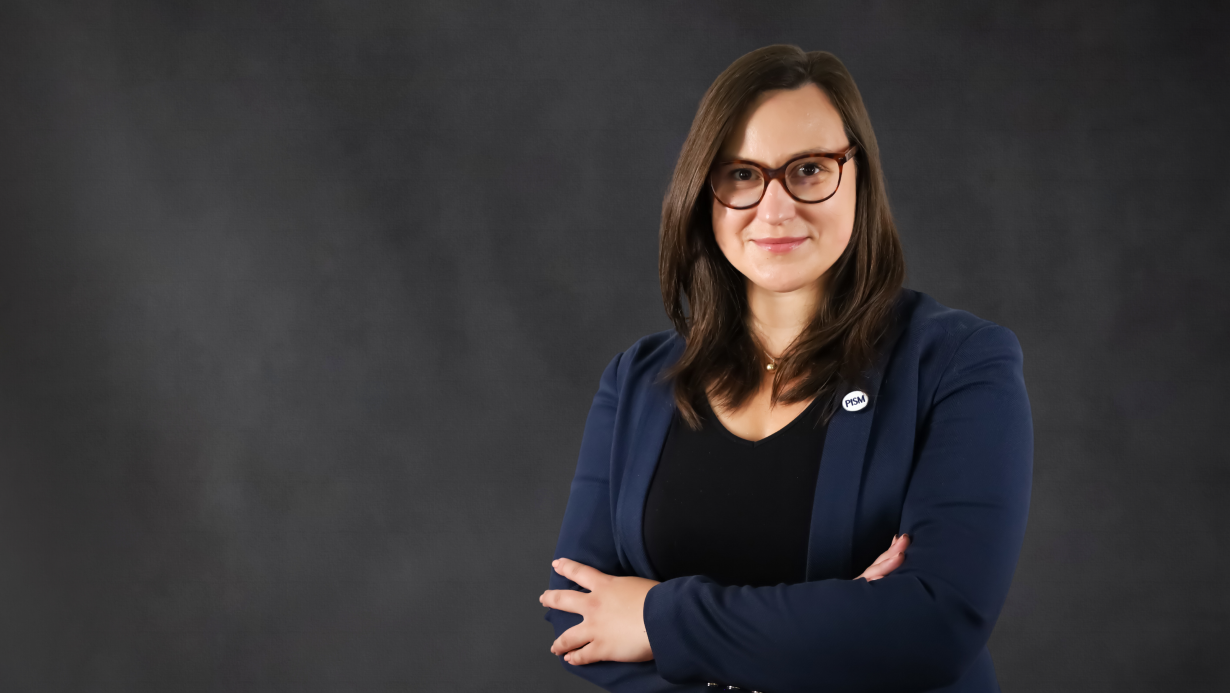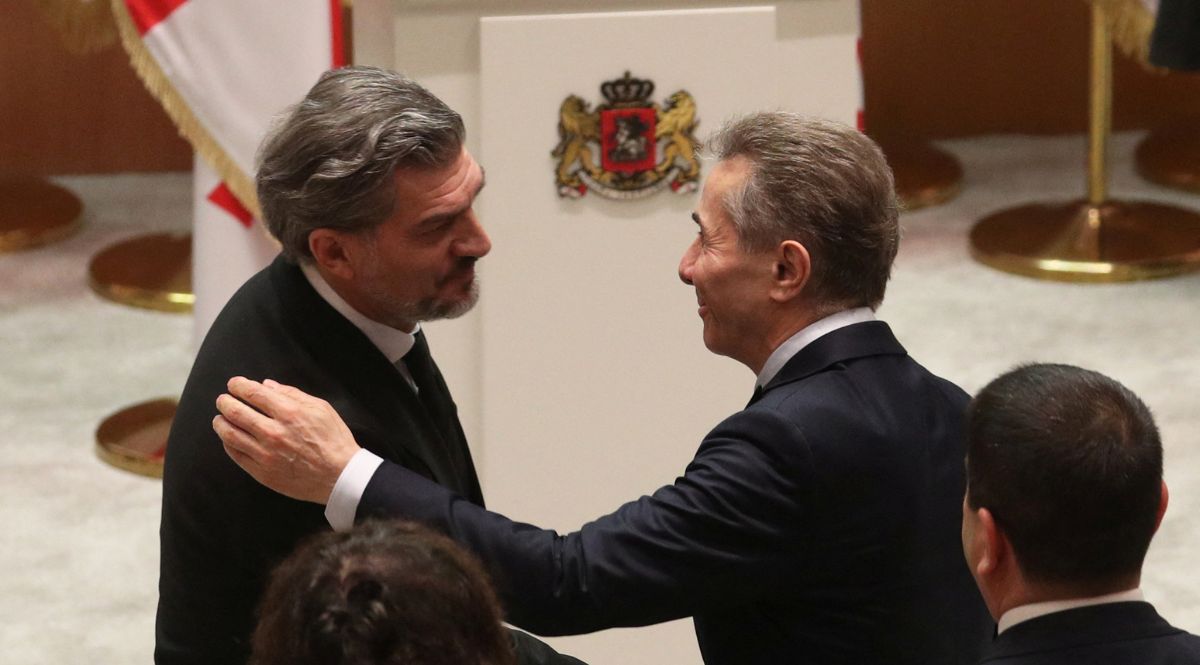Authoritarianism On the Rise in Georgia
The ruling Georgian Dream (GD) has continually pushed through legal changes to consolidate power. Among other things, Georgia’s mono-party parliament adopted a law on so-called foreign agents and introduced a requirement for government approval to fund non-governmental organisations (NGOs) with foreign grants. GD also announced the outlawing of the pro-Western opposition by the end of this year. In the following months, a tightening of the state’s authoritarian course is to be expected and therefore its further retreat from Euro-Atlantic cooperation.
(3).png) AA/ABACA / Abaca Press / Forum
AA/ABACA / Abaca Press / Forum
The current phase of the political crisis in Georgia was sparked by last year’s parliamentary elections, which the opposition considered rigged and the West criticised for numerous irregularities. After coming to power, GD intensified its anti-Western policies. The anti-Western and anti-democratic turn of the Georgian leadership stemmed from its desire to secure power for many years through full control over the state. For the past five months, the opposition and protesters have been calling for new elections and a return to the country’s pro-European aspirations. Initially, the authorities pacified the protests (around 450 people were detained and 60 are under criminal investigation) then changed tactics. They abandoned the use of force, but tightened regulations against the demonstrators.
Actions against the Opposition and Administration
In the last six months, GD has sought to marginalise the pro-Western forces and create a concessionary opposition and subjugate the public administration. It has lowered the threshold for the formation of political factions in parliament from seven to three MPs, after which it established two pseudo-opposition clubs, the Force of the People and the European Socialists (made up of existing GD deputies). The real opposition is boycotting the work of parliament—at its request, the ruling majority extinguished the seats of three of the four constituent parties. This made the parliament a de facto mono-party tool for passing laws consolidating the ruling party’s power.
GD has introduced the offence of “national treason” into the criminal code, which will most likely be used to eliminate political opponents, against whom proceedings are already underway before a parliamentary commission of inquiry. Its official task is to investigate abuses of the 2003-2012 period of rule of the United National Movement (of former president Mikheil Saakashvili) and the circumstances of the 2008 August war. In practice, the aim is to rewrite the history of Russian aggression against Georgia by blaming Saakashvili for it. The former president was sentenced in March to another long prison term, this time for illegally crossing the border in 2021 and embezzling public funds. Numerous opposition politicians are refusing to appear before the commission, for which they face up to a year in prison. The GD is also likely to invoke national treason in its application to the subordinate Constitutional Court to ban opposition groups. In addition, under the pretext of protecting young people, it has tightened its anti-drug policy, which may in fact serve as another tool to combat adversaries (using the post-Soviet model of depriving political opponents of their freedom for possession of planted drugs).
GD’s abandonment of its pro-European course sparked opposition in the form of petitions from parts of the public administration. All their signatories (around 700 people) lost their jobs under the pretext of a reorganisation of state institutions. In addition, GD abolished the Civil Service Office overseeing the apolitical nature of the administration. It also is conducting a hate campaign against the opposition, resulting in attacks on its politicians (including the egging of former Prime Minister Giorgi Gacharia and Georgia’s fifth president, Salome Zurabishvili, who does not recognise the election of a new president and considers himself to be still in office).
Action against Society
GD’s aim is to discourage Georgians from protesting and to destroy civil society. In recent months, cameras have been installed in the centre of Tbilisi, where protests are taking place, to identify participants, and the parliament has increased penalties for taking part in demonstrations (a fine of nearly EUR 1,800 for allegedly blocking roads during protests).
The GD also is preventing free media and NGOs from operating. Journalists have been banned from documenting trials. The amended media law bans foreign funding for media in Georgia (both traditional and online) and effectively introduced censorship. On 1 May, the largest opposition TV station Mtawari Archi ceased broadcasting because of lack of funding, among other reasons. GD also pushed through a new law on so-called foreign agents modelled on the U.S. Foreign Agent Registration Act of the 1930s, aimed at countering Soviet and fascist propaganda and influence. However, like the one passed a year ago, which was repealed, in order to stigmatise NGOs, it mandates the registration of organisations receiving as low as 20% of its budget from foreign funds on pain of fines, seizure of assets, and imprisonment of their executives for up to five years. The Grants Act, meanwhile, requires the approval of the authorities for NGOs to accept any foreign funding. As a result of these changes, the Georgian Foundation for Strategic and International Studies, Georgia’s oldest and best think tank on international issues, is set to close in the coming weeks due to a lack of funds to continue its activities. In addition, the ruling party intends to set up a state fund (EUR 6.4 million) to award its own grants to create a pro-government network of NGOs. To further restrict the operation of NGOs, the GD has also removed rules of parliament requiring civic organisations’ participation in the legislative process.
The ruling party has launched what it describes as higher education reform involving the reorganisation of universities, which will be used to remove academics opposed to its rule and withdraw accreditation of universities it deems unfavourable. In recent months, repression for participation in protests, including threats of expulsion, has affected students. Cultural institutions have also been targeted by the authorities, such as the dismissal of the director of the Musical and Dramatic Theatre in Tbilisi, who had expressed opposition to the GD government. The party wants to increase the influence over the artistic activities of cultural institutions perceived as hostile to the authorities. Other legal changes affect social groups such as LGBT+ (e.g., by banning equality parades).
International Reaction
In January, the Parliamentary Assembly of the Council of Europe (PACE) questioned the mandate of Georgian parliament delegates (GD deputies) on the grounds that the ruling party was destroying democracy in Georgia. Although it conditionally allowed Georgians to attend PACE in a limited role, their delegation opted out. However, it continues to exert pressure on the Georgian authorities, for example, calling in a 10 April resolution for the release of political prisoners and the holding of parliamentary elections in line with democratic standards.
EU Enlargement Commissioner Marta Kos has criticised Georgia’s retreat from European integration and the forceful suppression of protests. Although the EU has partly redirected financial aid to Georgia directly to NGOs and tightened the visa regime for government representatives, her response is weakened by opposition from Hungary and Slovakia. Sanctions blocked at the EU level are therefore being introduced and extended at the national level (entry ban for GD politicians and officers of the security structures responsible for repression)Among those enacting such sanctions are Poland, the Baltic republics, Germany (additionally suspending aid programmes), and, outside the EU, the UK (additionally freezing assets). In the U.S., legislation called the MEGOBARI Act, which provides tools to support Georgian society and put pressure on GD, in addition to limiting Russian influence in Georgia, is in process.
Conclusions and Outlook
GD is rapidly introducing a series of legal changes resulting in the transformation of Georgia’s political system from a hybrid regime to one of consolidated electoral authoritarianism. It aims to secure power by marginalising the opposition, suppressing dissent in civil society, and hampering the activities of independent media. Arrests of opposition politicians and the loss of media critical of the authorities as they are cut off from funding can be expected in the coming months. Due to the policies of the ruling party, Georgia is threatened by political emigration and “brain drain” of activists, journalists, and academics who will not be able to professionally and socially flourish under such an authoritarian regime.
The EU and its states can continue the policy of isolating the Georgian authorities and maintaining contacts with President Zurabishvili, as well as by introducing individual sanctions against members of the ruling camp. The EU can also set up a financial support fund, which it announced last autumn, for the third sector in Georgia before it is dismantled by the regime, as well as suspend visa-free travel, review the EU Association Agreement, and freeze Georgia’s candidate status for membership. Poland can build the broadest possible consensus at the EU level to put pressure on the GD regime and, if the situation deteriorates further, prepare instruments to support political emigration.




.png)
.png)
